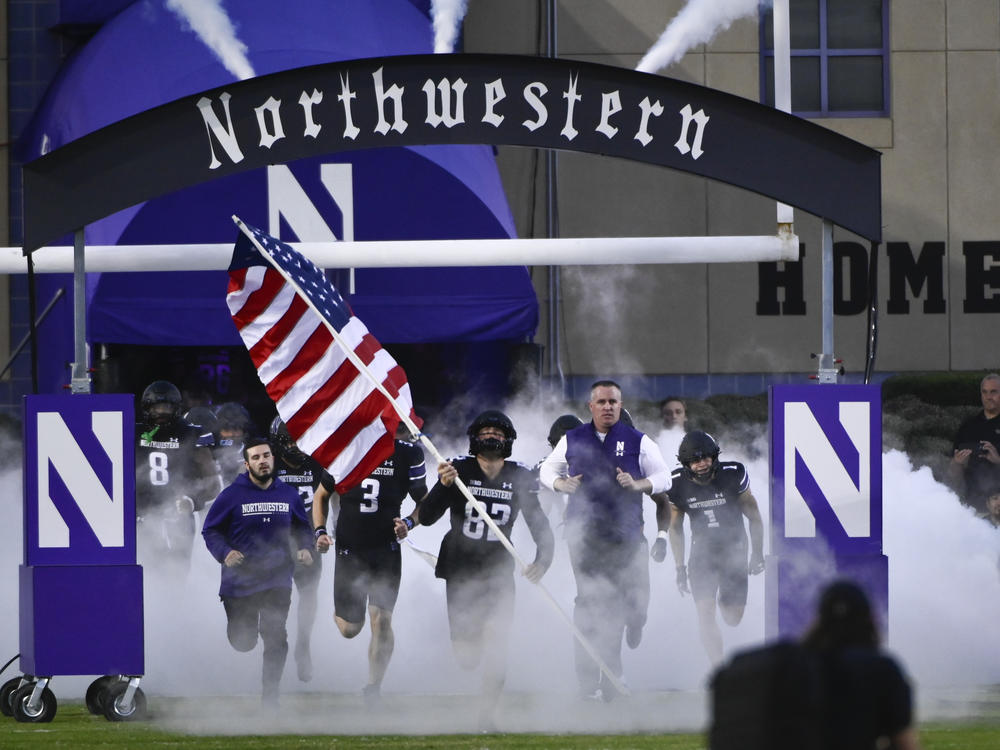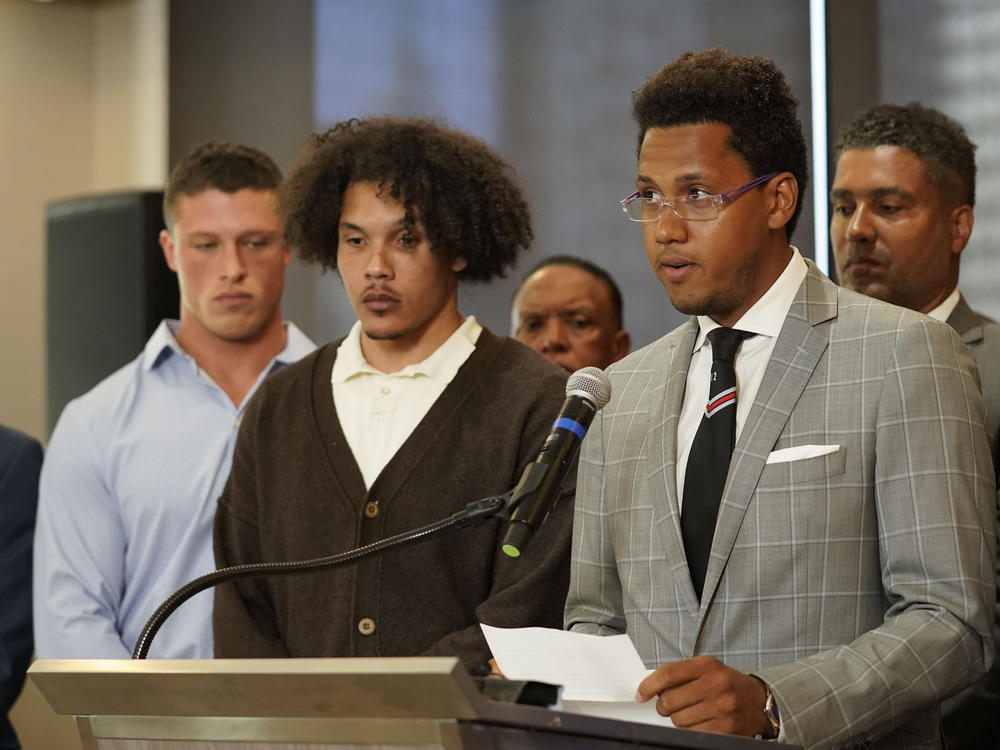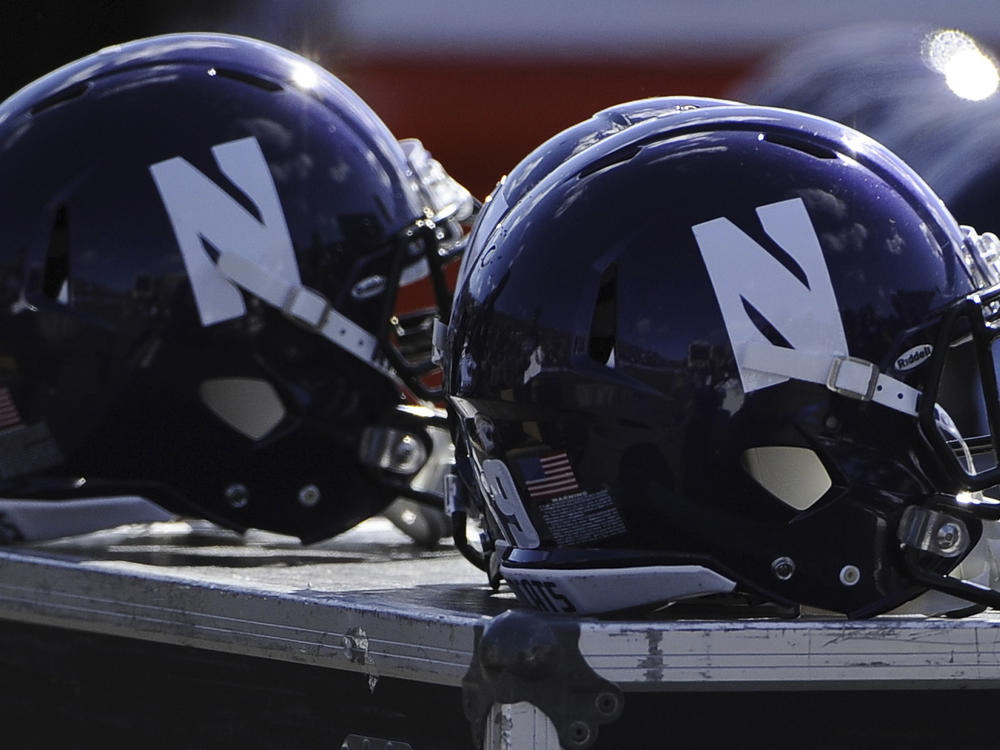Section Branding
Header Content
As hazing lawsuits mount against Northwestern, experts hope for a shift in attitudes
Primary Content
Over the last few weeks, numerous reports of alleged hazing, bullying and toxic cultures among sports teams at Northwestern University have surfaced, resulting in terminations of two head coaches and a series of lawsuits filed against the university.
The sports programs — including Northwestern's football, baseball and volleyball teams — have been mentioned in a growing number of complaints dating back to the last few years, as the university says it is committed to investigating any claims or evidence of hazing within its athletic programs.
"Hazing in any form is unacceptable and goes against our core values at Northwestern, where we strive to make the University a safe and welcoming environment for all of our students," Northwestern President Michael Schill said in a July 7 statement.
Making that strive, Northwestern officials announced Wednesday that the university's sports teams will begin participating in mandatory, in-person anti-hazing seminars — beginning with its football team.
"This entire situation, it's distressing," Athletic Director Derrick Gragg told ESPN. "As the situation evolves, we're very serious about eradicating anything that's wrong, the president and the university."
Experts on hazing prevention say the backlash that Northwestern sports programs are facing over the allegations of hazing and toxic culture could possibly lead to a major shift in how colleges and universities respond to incidents on campus.
"[My hope] is that there's a bigger shift in these institutions, within these programs that don't tolerate this conduct," Shiwali Patel, senior counsel and director of justice for student survivors at the National Women's Law Center, told NPR.
Former student-athletes are beginning to speak out against the university
Since the initial report of the university's alleged hazing practices in its sports programs, more student-athletes and their attorneys have spoken out and filed lawsuits against Northwestern.
In the lawsuits filed so far, they name the university, its president, its athletic director, the former athletic director — James Phillips — and head volleyball coach Shane Davis as defendants.
On Monday, former Northwestern quarterback Lloyd Yates held a news conference with prominent civil rights attorney Ben Crump to announce a lawsuit against the university, citing a "brainwashing culture" of alleged hazing and abuse.
Yates, who played at Northwestern from 2015 to 2017, became the first student-athlete to identify himself in a lawsuit against the university. He told reporters that he was speaking out to find both justice and closure for himself and other athletes.
"To all the young athletes out there, I urge you to stand up. Stand up for yourself, even when the odds are against you, for I've come to realize that no one else will," Yates said.
Crump, who is representing Yates, told reporters that he expects to file more than 30 lawsuits from former Northwestern athletes in the upcoming weeks and months.
"It's a real big deal when these young people have the courage to take a stand and refuse to be victims anymore, refuse to have their voices silenced but to take a stand," Crump said during the news conference.
Allegations have also expanded to other sports programs
In addition to Yates, a former Northwestern volleyball player has filed a lawsuit against the university, alleging Northwestern officials failed to properly address a hazing incident that took place two years ago.
The player, who is identified in the lawsuit as "Jane Doe 1," is the first female athlete from the university to come forward amid reports of hazing in Northwestern's football program. Doe is seeking at least $50,000 in damages and a jury trial.
According to the lawsuit, the former athlete says she sustained an unspecified injury in 2021 while running suicides — a conditioning exercise that involves sprinting different lengths across the court — as a form of punishment for allegedly breaking the team's COVID-19 guidelines.
As Doe ran the suicides, the volleyball coaching staff, team members and trainers watched, the suit says.
After Doe's injury, the university responded by conducting an investigation, during which it suspended the team's coach and coaching staff, Northwestern officials told NPR in a statement.
Outside the football and volleyball programs, Northwestern's baseball program is also facing scrutiny, as head baseball coach Jim Foster was fired for reports of having led a toxic culture within the baseball program, The Chicago Tribune reported.
A Northwestern athletics spokesperson declined NPR's request for comment regarding the investigation and Foster's termination.
Experts believe this moment could shed light on hazing
In a statement to NPR, Northwestern spokesperson Jon Yates said the university is working to ensure it has "appropriate accountability" for its athletic department, saying that Northwestern's president is committed to examining the culture of its athletic programs and their relationship to the academic mission.
"Although this incident predated President Schill's and Athletic Director Gragg's tenure at the University, each is taking it seriously," he said.
With the news of the hazing allegations on Northwestern's campus, hazing-prevention experts say that other colleges and universities across the U.S. should use this time to change their own culture on campus.
"I am hoping that students across the country will use this model and reflect on their own experiences in their athletic programs, realizing what is and what is not hazing and harassment, bullying ... and that there are laws and policies against that," said Susan Lipkins, the founder of Inside Hazing.
A psychologist who studies hazing, bullying and harassment, Lipkins told NPR that while we're seeing more students come forth simultaneously, hazing at college campuses (whether in sports or Greek life) is typical, which she hopes will change amid the slew of allegations and lawsuits.
"I would be hoping that all students on athletic teams will not only recognize that they've been hazed and that they have hazed others. And maybe as a group, we have the power and strength to break the code of silence and to change our culture," she said.
Patel echoed Lipkins' statement.
"I think part of it is education on hazing and why it's problematic and the impact of it and the harm on the institution itself," she said.
Copyright 2023 NPR. To see more, visit https://www.npr.org.



